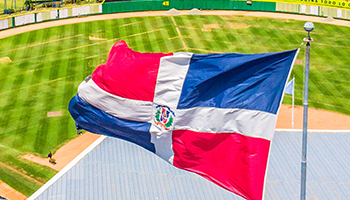USAID Trains Organic Banana Producers to Increase Production
 | USAID Trains Organic Banana Producers to Increase Production The U.S. Agency for International Development (USAID) trained 400 producers of organic bananas in fertilizer use and management through its Rural Economy Diversification Project to aid them in increasing their yield of this product. The beneficiaries of the training belong to the Los Taínos Agricultural Cooperative (COOPPROBATA), which is comprised of banana producers from Azua Province. The beneficiaries of the training belong to the Los Taínos Agricultural Cooperative (COOPPROBATA), which is comprised of banana producers from Azua Province. Two hundred eighty-two of the producers are certified as organic cultivators, and another 118 are in the process of obtaining certification. The USAID initiative is part of the Increased Yield Project for Plantations of Organic Bananas for Export whose primary goal is to increase production volume and sales of organic bananas. James Watson, Interim Director of USAID explained: “With the support of the small banana growers of Azua, USAID has fulfilled the purpose of the Rural Economic Diversification Project: to support small producers in diversifying their production so that they can be more competitive in world markets. We hope that with the technical assistance provided through the project, small producers of organic bananas can take a step toward achieving economic sustainability.” USAID provided 2.4 million Dominican pesos for the 24-month project to increase plantation yields, which was carried out in the municipalities of Azua, Estebanía, Sabana Yegua and Las Charcas in Azua Province. Assistance provided to the producers included the construction and upgrading of an organic fertilizer processing plant, a fertilization plan including soil preparation and training through a program of education in fertilizer management and soil preparation. The construction of the organic fertilizer processing plant will enable the cooperative to produce 15,000 quintals of compost per year, which will then be used to fertilize the banana plantations. USAID technical support included the formulation of a fertilization plan to cover 412.44 hectares annually. Banana production is expected to grow from 6,000 crates in 2009 to 9,000 crates this year, guaranteeing a yield of 25% during the low season and 50% in the high season. USAID USAID, through grants provided under the Rural Economic Diversification Project, supports small, collective investments of up to 2.5 million Dominican pesos to clusters and organizations of producers with the aim of stimulating rural economic diversification. Fifty-one grants have been made through this mechanism to organizations or producer associations for a total of 100.4 million Dominican pesos. For their part, the beneficiary groups have contributed 144.5 million Dominican pesos in cash or goods for a total investment of 244.9 million Dominican pesos. The project is based on demand and seeks to overcome obstacles to the sustained growth of non-traditional agriculture in the Dominican Republic. Los Taínos Agricultural Cooperative (COOPPROBATA) The Los Taínos Agricultural Cooperative (COOPPROBATA) arose from a group of organic banana producers who began to cultivate the product in 1997. It was incorporated on November 22, 2005, by Decree No. 628-05. The cooperative joins some 334 producers of which 274 are certified as organic banana producers. Its principal activity is the commercialization of organic bananas, which represents 80 percent of its income. It has 11 warehouses and offers its members a variety of services including sales of inputs, credit for maintenance of plantations and personal loans. The cooperative exports its output to Europe mainly through its trading partners AGROFAIR and Horizontes Orgánicos. The cooperative holds several certificates of organic production, including FLO from Germany for Fair Trade, Social and Environmental Responsibility, ORGÁNICO IMO and GLOBALGAP.
| |

Related News
-

(Versión en español) La Reina Letizia resalta el impacto del cacao en República Dominicana
-

(Versión en español) Banco Adopem premia el esfuerzo y la excelencia de sus colaboradores
-

(Versión en español) Archivo General de la Nación, 2024. Un legado de publicaciones
-

(Versión en español) Teatro Las Máscaras celebró su 25 aniversario
-

Dominicanos en Grandes Ligas
Las ultimas noticias/novedades de lo que acontece con los Dominicanos en las Grandes Ligas durante toda la temporada 2019.



